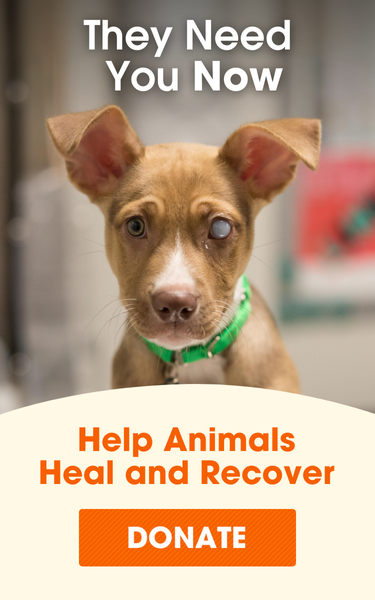
Halloween Safety Tips

Halloween can be the spookiest night of the year, but keeping your pets safe doesn’t have to be tricky. Our experts at ASPCA Poison Control recommend taking these simple precautions to keep your pets safe, happy and healthy this Halloween.
Stash the Treats
Kids love to hide candy in their rooms, but a dog’s keen sense of smell will lead them to even the most cleverly hidden treasure. Unfortunately, several popular Halloween treats are toxic to pets. Chocolate in all forms — especially dark or baking chocolate — can be very dangerous for cats and dogs, and sugar-free candies containing the sugar substitute xylitol can cause serious problems in pets.
Party Time
Halloween brings a flurry of activity with visitors arriving at the door, and lots of strangers (in creepy costumes, too) can often be scary and stressful for pets. All but the most social dogs and cats should be kept in a separate, comfortable room away from the front door during peak trick-or-treating hours. If you’re unsure of how their pet will do, it's best to be safe rather than sorry!
To distract from a frenzy of trick-or-treaters, or if you’re hosting guests, you can set your cat or dog up away from all the chaos with their favorite toys (such as a delicious chew or food puzzle toy for dogs, and interactive toys for cats). This tactic can soothe energetic pets and those who are anxious around crowds of people or children.
When it comes to party decorations, a carved jack-o-lantern certainly is festive, pets can easily knock over a lit pumpkin and start a fire. Curious kittens are especially at risk of getting burned or singed by candle flame. Also be sure to keep any wires out of paw’s reach!
Be Careful with Costumes
For some pets, wearing a costume may cause undue stress. We recommend that you don’t put your dog or cat in a costume unless you know he or she loves it. If you do dress up your pet for Halloween, make sure the costume does not limit his or her movement, sight or ability to breathe, bark or meow. Check the costume carefully for small, dangling or easily chewed-off pieces that could present a choking hazard. Ill-fitting outfits can get twisted on external objects or your pet, leading to injury, so be sure to have your pet try on the costume before the big night. If he or she seems distressed or shows abnormal behavior, consider letting your pet wear his or her “birthday suit” or don a festive bandana instead.
When it comes to human costumes, accessories are the best way to complete your boo-tiful look, but they are just as appealing to pets. Small toys or costume accessories pose a choking hazard to our four-legged friends and the plastic can be toxic.
Keep Pets Easily Identifiable
Pet IDs can be a lifesaver in finding a lost pet on Halloween — or any day of the year! Tags don’t have to be boring, either. There are plenty of fun, cute and even Halloween-themed pet IDs to pick from. On Halloween, there are a lot more people on the streets and that, combined with strange costumes, can spook pets and cause them to bolt. If you take your pet out after dark, make sure he or she wears a reflective collar, is securely leashed and has proper identification attached.
If you suspect your pet may have ingested a toxic substance, please contact your veterinarian or call ASPCA Poison Control at (888) 426-4435 immediately.
